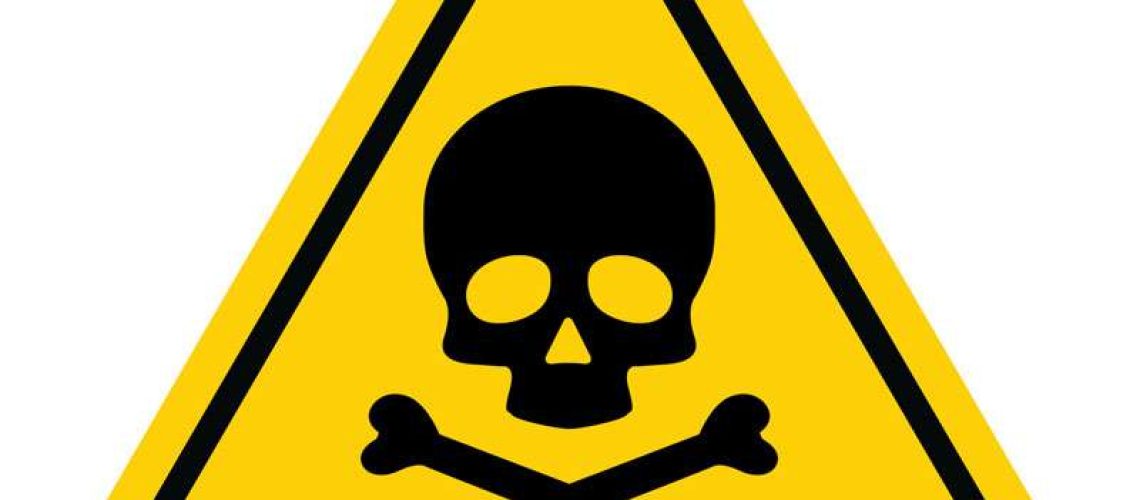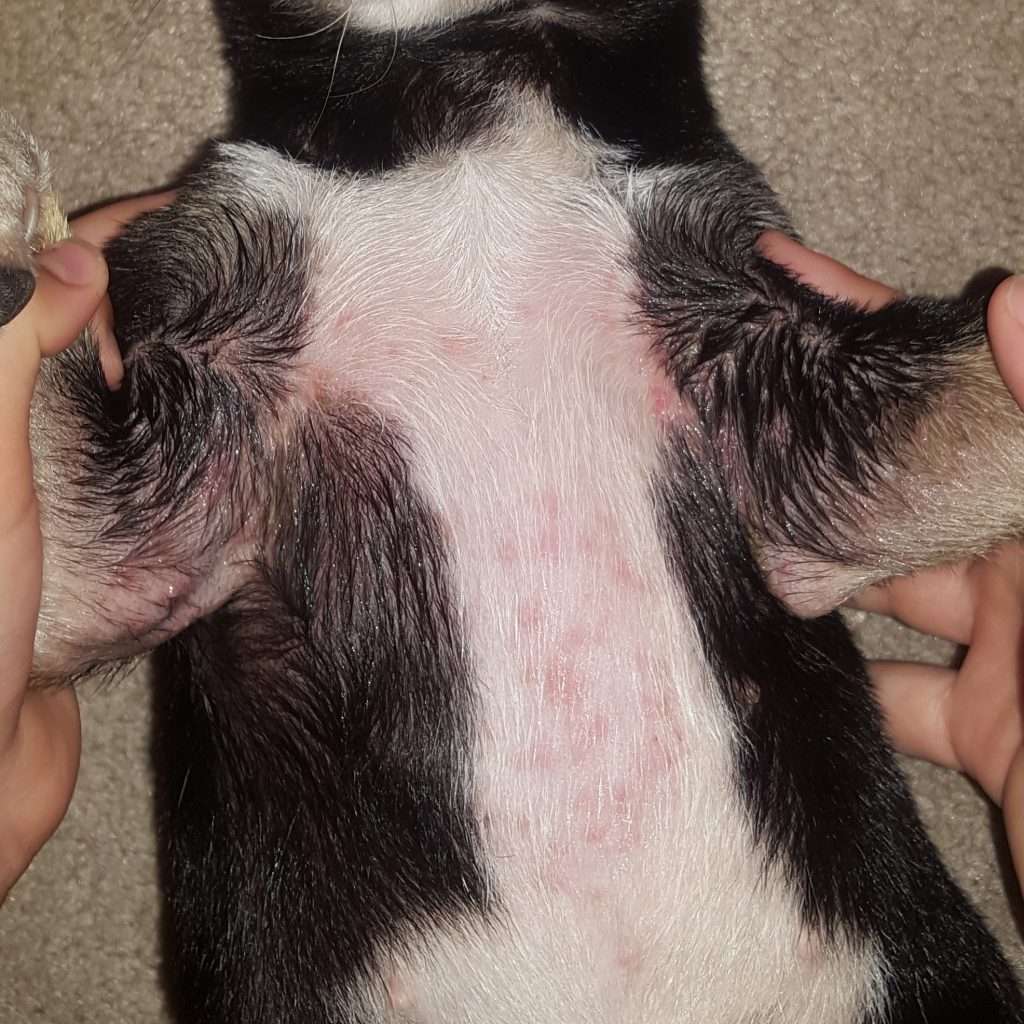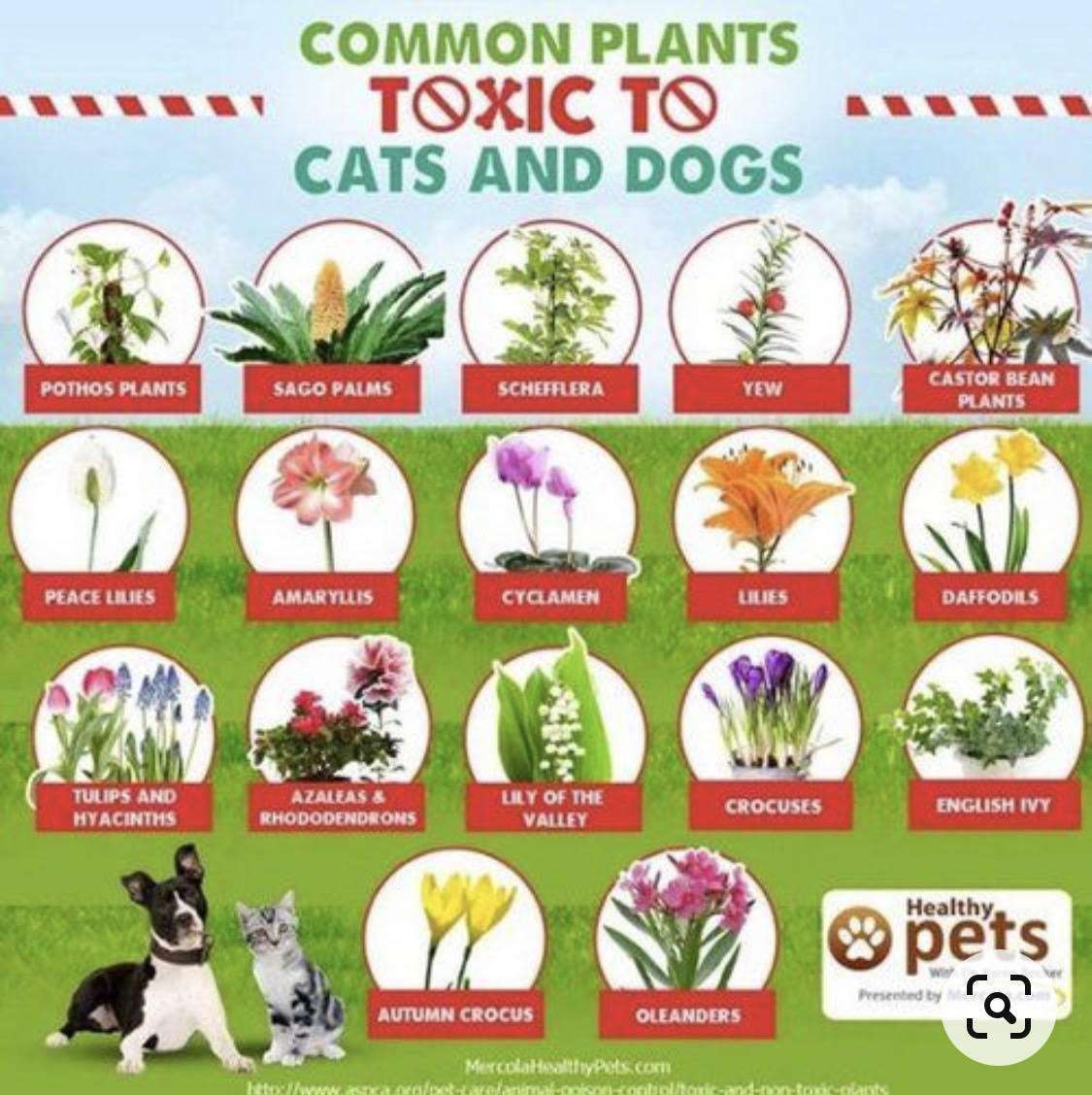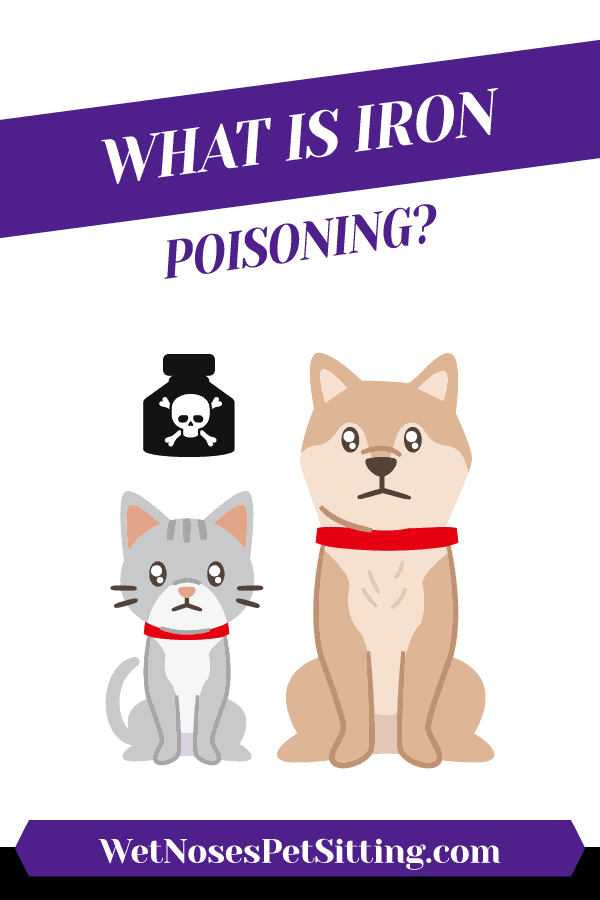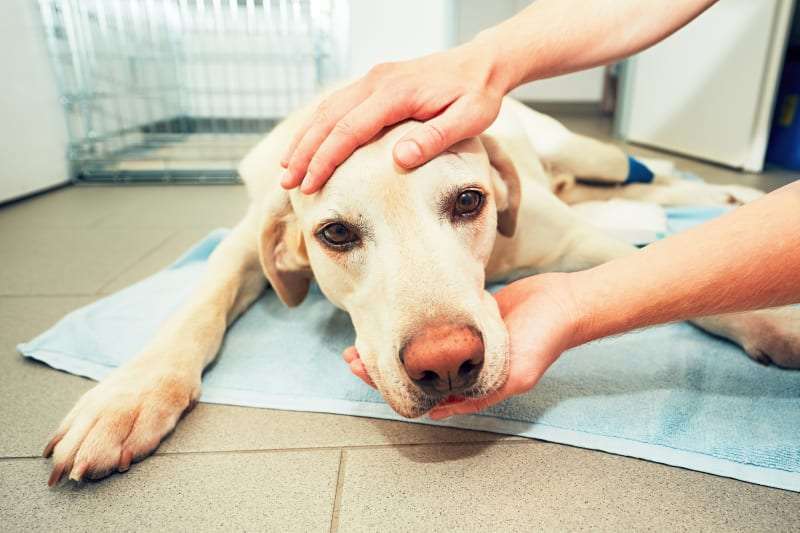Key Takeaways:
- Many common household items contain toxic chemicals that can be harmful or even fatal to dogs.
- Some common examples of toxic chemicals found in household items include cleaning products, certain foods, medications, and plants.
- Dogs are particularly vulnerable to poisoning as they are curious animals and may ingest or come into contact with these toxic substances.
- It is essential for dog owners to keep all potentially poisonous household items out of their pet's reach and securely stored away.
- If you suspect your dog has been poisoned, it is crucial to seek immediate veterinary assistance as early intervention can significantly improve the chances of a positive outcome.
Attention all dog owners! Did you know that there are hidden dangers lurking in your very own home that could harm your furry best friend? That's right, certain household items contain toxic chemicals that can poison dogs and put their health at serious risk. But don't worry, by understanding this important topic, you can keep your pup safe and ensure a happy and healthy life together. In fact, did you know that over 100,000 cases of pet poisoning occur each year? By delving into the world of toxic chemicals and household items, you'll gain valuable knowledge that could potentially save your dog's life. So let's dive in and uncover the surprising culprits that may be hiding in plain sight within your home. Get ready to become a vigilant protector of your four-legged companion!
Understanding Toxic Chemicals and Household Items that Can Harm Dogs
When it comes to keeping our furry friends safe, it's important to be aware of the potential dangers lurking in our homes. Many common household items and chemicals can be toxic to dogs if ingested or exposed to for long periods. Some examples of these toxic substances include cleaning products, pesticides, medications, and certain plants.
Cleaning products such as bleach, disinfectants, and floor cleaners contain harmful chemicals that can cause serious health issues if a dog comes into contact with them. Similarly, some pesticides used in gardens or on lawns can be poisonous to dogs if they lick their paws after walking on treated surfaces. Medications like painkillers, antidepressants, and even over-the-counter drugs can also pose a risk to dogs if accidentally consumed.
To keep your furry friend safe from these toxic substances, it's crucial to store them securely in cabinets or high shelves out of your dog's reach. Additionally, always read labels carefully before using any household product and follow instructions for proper usage and storage. By being aware of the potential hazards in your home, you can take proactive steps to protect your beloved pet from harm.
The Importance of Keeping Toxic Chemicals and Household Items Out of Reach from Dogs
As responsible pet owners, we have a duty to ensure the safety and well-being of our canine companions. One way we can do this is by keeping toxic chemicals and household items out of their reach. Dogs are naturally curious creatures who may explore their surroundings with their mouths, making them susceptible to accidental poisoning.
Exposure to toxic chemicals can have severe consequences for dogs' health. Ingesting certain substances can lead to symptoms such as vomiting, diarrhea, excessive drooling, difficulty breathing, seizures, or even organ failure. By keeping these harmful substances out of your dog's reach, you can significantly reduce the risk of them coming into contact with toxins and suffering from these dangerous effects.
It's important to remember that dogs are not always able to differentiate between what is safe and what is harmful. They may be attracted to the smell or taste of certain household items, making it crucial for us to take precautions. Store cleaning products, medications, and other potentially toxic substances in secure areas such as locked cabinets or high shelves. By doing so, you can create a safe environment for your furry friend and prevent any accidental poisoning incidents.
The Dangers of Certain Cleaning Products for Dogs if Ingested
Cleaning our homes is essential for maintaining a healthy living environment. However, some cleaning products can pose serious risks to our canine companions if ingested. Dogs have a tendency to explore their surroundings with their mouths, making them vulnerable to accidental ingestion of toxic chemicals found in common household cleaners.
Many cleaning products contain ingredients such as bleach, ammonia, or phenols that can be highly toxic to dogs if consumed. These chemicals can cause damage to the gastrointestinal tract, leading to symptoms like vomiting, diarrhea, abdominal pain, or even internal bleeding. In severe cases, ingestion of certain cleaning products can result in life-threatening complications requiring immediate veterinary care.
To protect your dog from the dangers of cleaning products, it's essential to store them securely out of their reach. Consider using childproof locks on cabinets where you store these items or keeping them on high shelves where your dog cannot access them. Additionally, opt for pet-safe alternatives when possible or choose natural cleaning solutions that are less likely to harm your furry friend if accidentally ingested.
Recognizing Signs and Symptoms of Dog Poisoning from Household Items
Being able to recognize signs and symptoms of dog poisoning is crucial for ensuring prompt medical attention and potentially saving your pet's life. Dogs are curious creatures and may accidentally ingest toxic substances found in our homes, leading to poisoning. By being vigilant and observant, you can identify the early warning signs of poisoning and take immediate action.
Common symptoms of dog poisoning include vomiting, diarrhea, excessive drooling, loss of appetite, weakness or lethargy, difficulty breathing, seizures, or changes in behavior. If you notice any of these signs in your dog and suspect they may have ingested something harmful, it's important to contact your veterinarian right away. Providing them with information about what your dog may have been exposed to can help guide their diagnosis and treatment plan.
Remember that time is of the essence when dealing with potential poisoning cases. Delaying treatment can worsen your dog's condition and make it more challenging for veterinarians to provide effective care. By familiarizing yourself with the signs and symptoms of dog poisoning, you can act swiftly to ensure the well-being of your furry friend.
Poisonous Foods and Plants that Can Harm Dogs if Consumed
While we often enjoy sharing food with our dogs as a sign of affection, it's important to be aware that certain foods can be toxic to them if consumed. Some common foods that are poisonous to dogs include chocolate, grapes and raisins, onions and garlic, avocado, alcohol, caffeine, and xylitol (a sugar substitute often found in gum or sugar-free products).
Ingestion of these foods can lead to various health issues in dogs. For example, chocolate contains theobromine which dogs cannot metabolize efficiently like humans do. This can result in symptoms such as increased heart rate, restlessness, tremors or seizures. Grapes and raisins can cause kidney failure in some dogs, while onions and garlic can damage their red blood cells and lead to anemia.
It's not only certain foods that can be harmful to dogs, but also some plants commonly found in households or gardens. Examples include lilies, azaleas, tulips, daffodils, and sago palms. Ingesting parts of these plants can cause symptoms ranging from gastrointestinal upset to organ failure.
To keep your dog safe from toxic foods and plants, it's crucial to educate yourself about what is harmful to them. Avoid feeding your dog any human food unless you are certain it is safe for them. Additionally, make sure your home and garden are free from potentially poisonous plants or keep them out of reach from your furry friend.
Preventing Accidental Poisoning: Steps to Keep Your Dog Safe from Toxic Substances
Preventing accidental poisoning in dogs requires proactive measures on the part of pet owners. By taking a few simple steps, you can create a safe environment for your furry friend and minimize the risk of exposure to toxic substances.
1. Store Hazardous Substances Securely:
- Keep cleaning products, medications, pesticides, and other hazardous substances securely stored in cabinets with childproof locks or high shelves where your dog cannot access them.
- Avoid leaving potentially toxic items unattended on countertops or floors where they may be within reach of curious paws.
2. Use Pet-Safe Alternatives:
- Choose pet-safe cleaning products whenever possible or consider using natural alternatives that are less likely to harm your dog if accidentally ingested.
- If you use pesticides in your garden or on your lawn, opt for pet-friendly options that pose minimal risks to animals.
3. Be Mindful of Food and Plant Safety:
- Avoid feeding your dog foods that are toxic to them, such as chocolate, grapes, onions, garlic, or foods containing xylitol.
- Ensure your home and garden are free from poisonous plants or keep them out of reach from your dog.
4. Supervise Your Dog:
- Keep a close eye on your dog when they are exploring new environments or visiting unfamiliar places to prevent them from ingesting harmful substances.
- Supervision is especially important during walks in parks or public areas where there may be potential exposure to toxic substances.
By implementing these preventative measures, you can significantly reduce the risk of accidental poisoning and provide a safe environment for your furry friend. Remember, prevention is always better than cure when it comes to keeping our dogs healthy and happy!
In conclusion, it is important for dog owners to be aware of the toxic chemicals found in common household items. By keeping these items out of reach and using pet-friendly alternatives, we can help protect our furry friends from potential poisoning and ensure their safety.
What if my neighbor poisoned my dog?
If you believe that your pet has been intentionally injured, take them to a veterinarian right away for medical care. If the pet doesn't survive, have a necropsy performed and ask your veterinarian to provide a statement describing the animal's condition and the treatment they received.
What chemicals are toxic to animals?
Many gardeners use herbicides, insecticide baits, sprays, and granules in their gardens without considering the potential harm these chemicals may have on pets. It is important to note that slug and snail baits that contain metaldehyde can be extremely toxic and even deadly to dogs if they are ingested.
What is the most common fatal poisoning in dogs?
Metaldehyde poisoning is a very grave condition that typically results in death if not promptly addressed. Metaldehyde is the leading cause of canine fatalities in cases reported to the Veterinary Poisons Information Service (VPIS).
What household item is toxic to dogs?
These foods include avocados, grapes, onions, chocolate, alcohol, and yeast dough. We will also discuss symptoms of dog poisoning from foods like macadamia nuts and sugar-free products like chewing gum or peanut butter, as well as the impact of bones, sweetcorn, and high-fat foods on your dog's digestive system. (Date: December 21, 2020)
What in my house could be making my dog sick?
Household cleaners that contain chlorine, bleach, and ammonia can be harmful to pets and increase their risk of developing cancer, kidney damage, and anemia. These toxic cleaners can still pose health risks even when they are stored away, as they release harmful vapors.
Can a neighbor poison my dog?
California Penal Code Section 596 states that anyone who intentionally administers poison to someone else's animal or exposes a poisonous substance with the intention of the animal ingesting it, without the owner's consent, is committing a misdemeanor offense. (Date: July 12, 2022)



